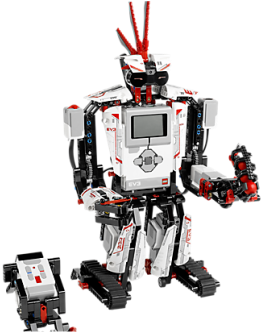The Lego Mindstorm Design Challenge

Department: Systems Engineering, Cornell University
Prof. Schneider’s research has traditionally focused on the realm of NP-Hard Computer Science Problems and Controls for Robotic Systems in both centralized & decentralized and autonomous & semi-autonomous systems. He is also dedicated to STEM and particularly engineering education.
Project Overview
The Lego Mindstorm Design Challenge is a fun, hands-on experience where teams of students design, build, and test Lego robotic solutions to a multi-objective request for proposal (RFP). The real challenge though lies in learning and applying key professional design skills as students work to continually improve the performance of their robotic systems, making and justifying important trade-offs, while mitigating design and operation risks. These skills are essential not just for the success of this project but skills that can serve students well in any career path they choose, engineering or otherwise. This is a unique opportunity to develop an understanding of these professional design fundamentals that yet are considered lacking in many graduating college students even from the nation’s top colleges.
Students will also be exposed to how to deal with clients, conduct progress reviews with their boss, and ultimately being able to prove the value of their solution towards meeting any customers’ needs. No prior experience is required but students quickly realize how their own design skills, regardless of where they were coming into the course, could be significantly improved upon by utilizing this experience’s tools. The project concludes with a fun robotic proving ground decathlon event where each team demonstrates their final robotic designs in action!
The project is based upon the concepts that are the focus of national competitions like the Intel-Cornell Cup that has aided students to become the first American winners of the James Dyson Award for Engineering and Design, winners of numerous entrepreneurship competitions, and even one of America’s “30 Under 30”. The Intel-Cornell Cup was also part of 1 of 7 university efforts highlighted in the White House Fact Sheet of Making and the most represented organization at the National Maker Faire.

